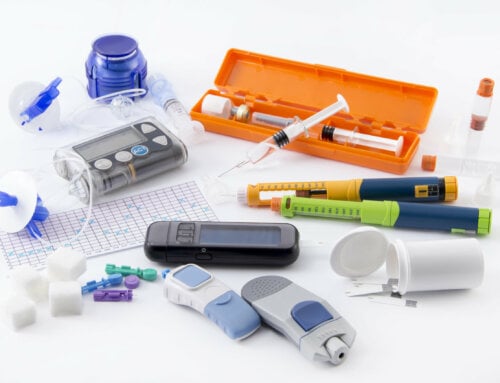The teen years are often difficult and can be more challenging for children with type 1 diabetes. Increased independence also means additional responsibility. Parents can help by ensuring the child gets education and resources to stay healthy and safe with type 1 diabetes.
- The patient, family and medical professionals should work together to prepare for the transition to adolescence. Review diabetes self-management skills such as glucose self-monitoring, medication, insulin administration and keeping proper supplies on hand such as an insulin pump and insulin pump supplies Discuss heath insurance and maintaining coverage as well as the importance of seeing a doctor every three months.
- Get a written summary from the doctor to refer to during emergencies. The list should include medications, glucagon injection instructions, basic self-care skills, a summary of past glycemic control, diabetes related issues and any history of depression or other mental health problems. This can be a lifesaver.
- Discussion of teen challenges and how they may impact diabetes self-management. Changes happen socially, vocationally and educationally. Teens might stay away from home for camp, school or sleepovers. Young adults taking insulin need to adhere to a schedule. Blood sugar levels should be monitored constantly to ensure they don’t get too high or low. A testing log book should be maintained and brought to all doctor appointments.
- Go over proper food choices such as eating fruits, vegetables, whole grains and lean proteins. Discuss the importance of avoiding soda, sugary snacks and salty foods. Encourage teens to engage in regular physical activity for at least 30 minutes a day, 5 days a week. Teens with diabetes might be evaluated for eating disorders if there is a risk of anorexia or bulimia-very common in females.
- Review sexual behaviors with teens including pregnancy planning and risks, birth control and prevention of sexually transmitted diseases. Potential reproductive issues should be discussed. Give teens a list of resources to help them make good choices.
- Have an open conversation about smoking and drinking with teens. People with diabetes are at a higher risk of developing cardiovascular disease and should not smoke. Excessive drinking can cause dangerous blood sugar fluctuations and even a diabetic coma. Make sure they know to eat when drinking any alcohol.
- As new drivers, teens should be aware heightened blood sugar levels can make it hazardous to drive. Dizziness, confusion, blurred vision and other symptoms may lead to a serious accident on the road. Blood sugar levels should be monitored before getting behind the wheel and again if driving longer than one hour.
- Review the importance of seeing an eye doctor and dentist at least once a year. Discuss proper foot care such as keeping feet dry, warm, covered and free of cuts. Wear breathable diabetic socks and never walk barefoot. Preventative care is essential to avoid further health issues.
- Advise teens of the importance of early detection of low or high blood sugar. Have a “sick day kit” on hand that includes crackers, diet and regular soda, diet and regular pudding, diabetic snacks and soup. Knowing when to check for ketones and using a ketone testing kit is important. Nausea, vomiting, severe diarrhea and extreme hot or cold body temperatures are all reasons to contact a doctor immediately.
Transitioning to the teen years can be even more difficult for children with type 1 diabetes. Make sure they have the educational, physical and emotional tools to succeed. Encourage proper diabetes self-management for a lifetime of good health.






Leave A Comment